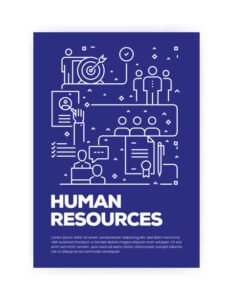
Casual employee rights
Casual worker rights are increasingly in the spotlight as the federal government aims to bolster them. But it has not always been this way. For many years, casual workers have been exploited by employers. And many casual workers still do not understand the rights that they have under the law. In this article, we detail the rights that many casual workers have that they may not be aware of. And we explain how casual employees can exercise their right to take action through the Fair Work Commission.
Proposed law aims to bolster casual worker rights
According to the latest figures from the Australian Bureau of Statistics, in August 2022 there are 2.7 million casual workers in Australia. This amounts to 23 per cent of all employees in the nation. Given that casuals are such a large part of the workforce, it is understandable that politicians are now pledging to bolster their rights.
For years, a significant number of casual workers have found themselves in a precarious position. Despite working consistent full-time hours, they have been classified as casual employees. They have thereby been denied the job security and benefits that permanent employees enjoy. This situation has allowed employers to benefit from a reliable workforce without providing adequate job security in return.
Federal government pledges strengthen casual worker rights
In July 2023, the federal labour government announced a new tranche of workplace reforms that aim to strengthen the rights of casual workers. The reforms aim to close a longstanding loophole in employment law that has left many casual workers without the job security they deserve.
Under the new legislation, casual workers who work permanent, regular hours will have the opportunity to convert to full-time employment status. This will help more than 850,000 casual workers access crucial benefits such as leave entitlements and guaranteed hours.

New law will establish definition of casual worker
One of the key pillars of these workplace reforms is the introduction of a “fair, objective definition.” This will help determine when an employee can be classified as a casual worker. The new definition will also provide clarity and transparency, ensuring that those who work full-time hours are recognised as such. By eliminating ambiguity, casual workers will no longer be left in the lurch when it comes to their employment status.
The law reforms will not force any casual worker to become a permanent employee. The government’s approach focuses on empowering employees with choice. For those casual workers who prioritise job security and stability, the option to convert to permanent employment will be within reach.
Understanding the rights of casual workers in Australia
While the government’s reforms will give casual workers new rights, what rights do they currently have? Here, we outline the fundamental rights that all casual workers are afforded by Australian law.
Casual Loading
One distinctive feature of casual employment in Australia is casual loading. Casual workers typically receive a higher hourly rate than their full-time or part-time counterparts. This additional payment serves as compensation for the absence of entitlements like paid holiday and sick leave. Modern awards often specify a minimum casual loading of 25 per cent. But the actual rate may vary based on individual circumstances and employment arrangements.
National Employment Standards
Like full and part-time employees, casual workers are entitled to the ten minimum standards set by the National Employment Standards. These standards cover various aspects of employment, including maximum weekly working hours, unpaid parental leave and public holidays. Regardless of their casual status, workers can access these fundamental entitlements, ensuring a basic level of protection and fairness.
Minimum wage
Another crucial right afforded to casual workers is the national minimum wage, which is adjusted annually by the Fair Work Commission. As of July 2023, the national minimum wage stands at $23.23 per hour. This ensures that casual workers receive fair compensation for their labour and helps maintain a level playing field in the labour market.
Superannuation guarantee
Under the Superannuation Guarantee, employers are obligated to contribute 11 per cent of an employee’s ordinary time earnings to their superannuation fund. This right applies to casual employees as well, provided they meet certain criteria, such as being over 18 or working over 30 hours a week. While the amount of superannuation contributions may vary due to fluctuating work hours, casual workers can rest assured that they are building financial security for their future.
Protection from adverse action
The general protections provisions of the Fair Work Act 2009 help safeguard casual employees from adverse action. This includes discrimination, sexual harassment, bullying and being dismissed for making a workplace complaint. If a casual worker has experienced adverse action, they can make a general protections claim with the Fair Work Commission.
Protection from unfair dismissal
Casual employees in Australia do not have the same job security as permanent employees, as their employment is intended to be flexible and temporary. However, there are protections in place to prevent unfair dismissal. Casual workers have the right to make an unfair dismissal claim with the Fair Work Commission if they meet certain criteria. This includes having worked for their employer for at least 12 months. And that their work was of a regular and systematic nature.

General protections case: Casual worker takes café to Fair Work Commission over trial shift
The case Adam Hildebrandt v Coffee Smugglers Pty Ltd T/A The Den Cafe And Bar [2023] provides an example of a casual worker who held their employer to justice via a general protections claim. This case saw the Fair Work Commission grapple with the often-murky waters surrounding the concept of “trial shifts.” It is something that many casual workers would have first-hand experience of.
The case involved casual worker Adam Hildebrandt, a full-time university student. In June 2022, he had sought his first-ever job opportunity at The Den Cafe And Bar in Engadine, New South Wales. Mr Hildebrandt was employed as a Casual Food and Beverage Attendant Grade 1 under the Restaurant Industry Award 2020, earning an hourly wage of $27.46. The violation of his casual worker rights began when the café underwent a change of ownership.
Casual worker caught up in trial shift disagreement
On 27 March 2023, Coffee Smugglers Pty Ltd acquired The Den Cafe And Bar, leading to a change in Mr Hildebrandt’s employment. This transition marked the beginning of a series of events that ultimately led to his general protections claim. The heart of the matter in this case revolves around the notion of a “trial shift.” In the hospitality industry, it is not uncommon for potential casual employees to participate in trial shifts to assess their suitability for a role. Coffee Smugglers argued to the Fair Work Commission that Mr Hildebrandt’s work engagement was indeed a “trial shift.” And therefore the business maintained that he was never officially hired as an employee.
However, Mr Hildebrandt contested this argument. He argued to the Fair Work Commission that he was invited to continue working for Coffee Smugglers during a staff meeting. And that he had been offered and accepted a specific shift without any mention of a trial period.
Mr Hildebrandt claimed that he had been dismissed from his employment with Coffee Smugglers in violation of the general protection provisions of the Fair Work Act 2009. Coffee Smugglers maintained that Mr Hildebrandt was never an employee, thus nullifying any claim of dismissal.
Fair Work Commission sides with casual worker over trial shift
The critical question the Fair Work Commission had to answer was whether Mr Hildebrandt’s work, despite being labelled a “trial shift,” constituted employment under the law. The Fair Work Commission carefully examined the facts of the case and the communications between Mr Hildebrandt and Coffee Smugglers.
In a decision that could have implications for how casual trial shifts are perceived in the industry, the Fair Work Commission ruled in favour of Mr Hildebrandt. It found that all the communication from Coffee Smugglers to Mr Hildebrandt indicated an intent to employ him as part of their team.

Fair Work Commission dismisses employer’s attempt to justify trial shift
Coffee Smugglers argued that it would be “highly impractical” to employ every individual who works a trial shift. And the company argued that trial shifts were common practice in the hospitality industry. However, the Fair Work Commission delivered a stern response to this claim.
It said that “if a person is employed, even for one shift, then certain obligations arise for employers.” And the Fair Work Commission added that “Coffee Smugglers might now appreciate, certain protections are afforded to employees.” As a result, the Fair Work Commission ruled that Mr Hildebrandt was an employee of Coffee Smugglers. And that he had been dismissed from his casual employment. Mr Hildebrandt’s general protections claim was therefore allowed to proceed, with a conference to be scheduled between the two parties.
Unfair dismissal case: Casual florist dismissed while on while on leave due to home invasion
An example of a casual employee who contested their dismissal via the Fair Work Commission is Kate Clift v Tony’s Wholesale Flowers Pty Ltd [2022]. This case attracted national headlines. It highlighted how some employers can take advantage of casual workers by harassing them and making up excuses to dismiss them. In this case, Tony’s Flowers argued to the Fair Work Commission that it had dismissed casual florist Kate Clift due seasonal workforce adjustments. However, Ms Clift argued that this was not the true reason why she was dismissed.
She argued to the Fair Work Commission that she had not been employed by Tony’s Flowers for seasonal work. Instead, she had been consistently employed for a range of tasks throughout the year. Her work hours were stable and systematic, suggesting ongoing employment prospects. She said that her dismissal occurred during Tony’s Flowers’ busiest week, right before Mother’s Day. This suggested that her employment was not genuinely tied to seasonal demands.
Ms Clift detailed to the Fair Work Commission that her dismissal took place immediately after a period during which she had taken unplanned leave. And the reason she took the leave was due to illness and later due to a traumatic home invasion.

Casual florist argues employer lied about dismissal reason
Despite providing notice and following the correct procedures for taking time off, Ms Clift believes her unplanned absences were the key factors leading to her dismissal. She also pointed out that she had only requested one day off, not all of her scheduled shifts. Yet she was still removed from the roster and dismissed.
“I was not warned that this was a concern for my Employer in taking unplanned days off/rejecting my shifts as a Casual, and this completely took me by shock. I have subsequently been left unemployed and under significant financial hardship attempting to find new work since this occurred,” said Ms Clift in her unfair dismissal claim.
Tony’s Flowers, on the other hand, presented a different perspective to the Fair Work Commission. The company contend that their business model revolves around seasonal events like Valentine’s Day and Mother’s Day. During these peak periods, they require more staff to handle the increased workload. Mother’s Day in particular is their busiest time of the year, and they reduce staffing levels once the demand subsides.
Fair Work Commission sides with casual florist
This unfair dismissal case came down to a fundamental disagreement over the reason for Ms Clift’s dismissal. She believed it was due to her unplanned leave. While Tony’s Flowers maintained it was a result of seasonal workforce adjustments. Ultimately, the Fair Work Commission sided with Ms Clift, finding that her dismissal was “unreasonable.” This finding was arrived at as Ms Clift had been working as a casual for Tony’s Flowers for over 18 months. Also, her working pattern was regular and systematic. And Tony’s Flowers had never told her that her work was seasonal.
The Fair Work Commission reasoned that if she had not been dismissed, Ms Clift was likely to have been employed for another five weeks. This time period amounted to wages of $2,890 plus super contributions. But the Fair Work Commission was not able to order Tony’s Flowers to pay Ms Clift that amount as she had not provided details of her new employment.

Have your casual rights been violated?
Our team at A Whole New Approach are experienced mediators who can help you take action through the Fair Work Commission. We can help you if believe you have been unfairly dismissed from your casual job. If you have experienced discrimination or harassment. Or if you have had your casual rights violated in any other way. For instance, not being paid for a “trial shift.”
Our team can help simplify the process of making a general protections or unfair dismissal claim with the Fair Work Commission. Over the last 30 years, we have helped over 16,000 workers do just that – so we know how to get the best outcome for you. Don’t suffer toxic workplaces in silence.
A Whole New Approach offers a no win, no fee service and a free initial consultation. Feel free to call us today on 1800 333 666 for a private conversation about your situation.
Dismissal or General protections claim which do i lodge?






